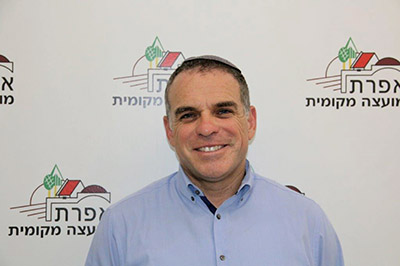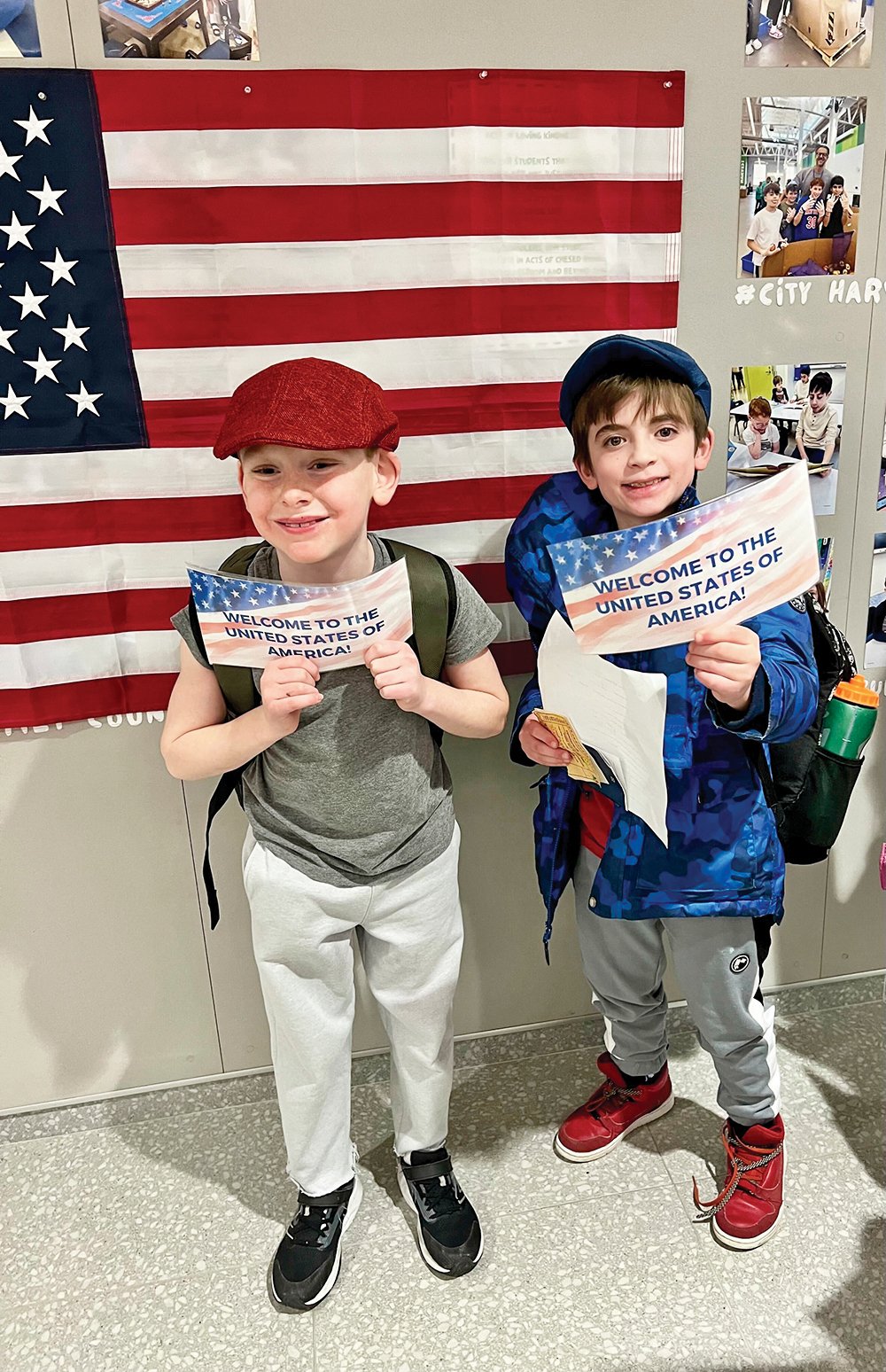
Oded Revivi is mayor of Efrat and chief international envoy for the YESHA Council (Council of Jewish Communities in Judea and Samaria). He is a staunch advocate of co-existence and fostering improved relationships with Efrat’s neighboring Palestinian villages. Under his leadership, the city has grown and is expected to increase its population by 60 percent in the next two years, from 10,000 residents to 16,000. Mayor Revivi was chosen to be a mentor for newly elected mayors by the Ministry of the Interior in cooperation with the Center for Local Government and the Hebrew University.
In your opinion, what makes Efrat such an attractive community for Olim Chadashim?
Efrat is a community that offers olim, besides the familiarity of the English language, an entire unit in the municipality which has wonderful programs, trips and services for the olim that help them adjust to the challenges of living in a new country. Children of new olim participate in special programs during school hours that ease their way into full involvement with their regular classroom. Olim know that they have a very strong support system in Efrat and appreciate that they don’t have to face the various hurdles alone.
What kind of community is Efrat like religiously in terms of shuls and schools?
There are over 30 synagogues (which follow the religious stream but in different forms) in Efrat which provide possibilities for each resident to belong to a synagogue that best represents his culture and preference. With regard to our education system, we have 27 kindergartens, including a kindergarten which all the kindergartens visit on a regular basis, that specializes in topics dealing with sustainability, the environment, music and science; four elementary schools; three yeshiva high schools; and one educational agricultural farm. In addition, there are several post-high school yeshivot. All together, Efrat provides educational institutions for close to 5000 students. We believe in educating our students “according to his way” and in the past year we opened up an elementary school that offers a pluralistic learning environment. We also are proud of our six special education kindergartens and special education elementary and high school classes. Our motto is “education around the clock” and through our formal and informal programs, our youth are busy in an enriching, motivating and positive way.
What is your vision for Efrat as a community?
My vision for Efrat is for the city to grow and expand and fulfill its potential as the capital of Gush Etzion but not lose the personal connection between the Moetza and its residents and the concern and responsibility the residents demonstrate towards one another. I want the city to be a model for excellence in education; beautification of the city; programs for youth, young couples and senior citizens; and attention to the various needs of our residents. We want to continue our beneficial connection with our Arab neighbors, which is a relationship which needs constant nurturing and attention.
What is the security situation like in Efrat?
We are constantly striving to provide the best possible security for our residents. There are security cameras positioned all around Efrat that broadcast pictures to the screens in our security center, which is manned 24/7 with staff that are constantly watching the screens day and night for any infiltrations or unusual occurrences. Our security department with trained personnel are constantly patrolling around Efrat and we have a first-alert security team that are called to the scene when needed. The army is in constant touch with us with updates and are called upon when needed. The government also provides us with security components. We have our own ambulances and medical teams. We have plans to introduce drones into our system. Our residents feel safe and protected knowing that their security is our top priority.
What do you believe is the best way to deal with the housing crisis in Israel?
When you think about it, nobody really has an interest to reduce the property prices besides those people who are buying their first property and even they, a minute after they buy it, want the prices to go up. Once you realize that, you understand that we need to find a creative solution. In England they have done it in a way whereby the government remains a partner in the ownership over the land, in the sense that when the property prices go up, both the government and the private owner will enjoy the profit. If we adopt such a mechanism in Israel, it will bring about a reality that the government will be less hesitant to market the land. By freeing up massive parcels of land for building and by adopting the British model, housing prices will be more affordable.
In your opinion, what are the three most important issues in Israel right now?
Bridging the gaps in Israeli society, our relationship with the Palestinians, and our relationship with our fellow Jews in the diaspora.
If you were prime minister of the state of Israel, what would be your first move?
I would try and find the widest common denominator amongst the different groups that are in dispute. We are living in times when people are trying to define their uniqueness at the expense of searching for a common denominator. Some people think that unity is the opposite of polarization, but I disagree, unity does not mean ideological agreement but the ability also in the heat of debate to continue to meet, listen and talk, convince and be convinced, to be united around the understanding that we are brothers. We need to stop searching for what divides and separates us and start looking for common and unifying factors. In this way we can achieve a better reality between religious and non-religious, residents of the center of the country and those that live in the periphery, Israel and the diaspora, Jews and Arabs.
What is your message to the readers of this interview in America?
That Efrat is an excellent choice for new olim because of its proximity to Jerusalem, its beauty and climate. We have inspiring leaders of Torah and chesed. It’s large percentage of English speakers makes it the perfect choice for new immigrants. The municipal and school staff as well as the community at large is also incredibly supportive and inclusive of newcomers. The Efrat school system was rated eighth in the country for its achievements and is well known for its excellent educational institutions. New olim can feel very much at home and there are many opportunities for them to contribute and make an impact in the community.
By Doni Cohen
Doni Cohen, 22, made aliyah from Bergenfield to Efrat in July, 2013. He did hesder in Yeshivat HaKotel, serving in Tzahal as a commander in the Military Rabbinate, and is now on shlichut through “Torah MiTzion” for the year in Melbourne, Australia. He will be studying political science, middle eastern studies, Islam and Arabic next year at Hebrew University. Doni’s aliyah story has been featured in a past issue of The Jewish Link. You can contact him at [email protected].













